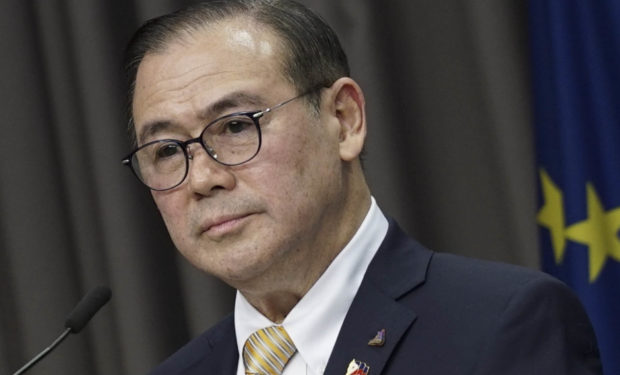PH, US to iron out differences on VFA
The Philippines and the United States will meet this month to iron out differences over their two-decade-old Visiting Forces Agreement (VFA), Manila’s top diplomat said, amid renewed concerns in the region over China’s assertive maritime agenda.
The Philippines in November suspended its decision to terminate the VFA for a second time to allow it to work with Washington on a long-term mutual defense pact.
“The suspension was intended that we should continue working and I am narrowing down the issues and soon we will meet … and iron out whatever differences we have,” Foreign Secretary Teodoro Locsin Jr. said in a televised interview on Monday.
He said a meeting was likely in the last week of February.
Locsin declined to elaborate on the terms of a potential agreement.
Article continues after this advertisementPresident Duterte notified Washington in February last year that he was canceling the deal amid outrage over a senator and ally being denied a US visa.
Article continues after this advertisementBut he has extended the termination process, which has now reached US President Joe Biden’s term.
The VFA provides the legal framework under which US troops can operate on a rotational basis in the country and experts say without it their other bilateral defense agreements, including the Mutual Defense Treaty (MDT), cannot be implemented.
Last month, US Secretary of State Antony Blinken stressed the importance of the MDT and its clear application if Manila came under attack in the South China Sea.
Blinken’s comments came as Manila filed a diplomatic protest over China’s passing of a law allowing its coastguard to open fire on foreign vessels, describing it as a “threat of war.”
China claims almost all of the South China Sea, which is a major trade route. The Philippines, Brunei, Vietnam, Malaysia and Taiwan have overlapping claims.
Locsin said he would continue to press for a code of conduct in the disputed waters that “will never exclude” the United States to ensure the balance of power between Washington and Beijing in the region. —Reuters
